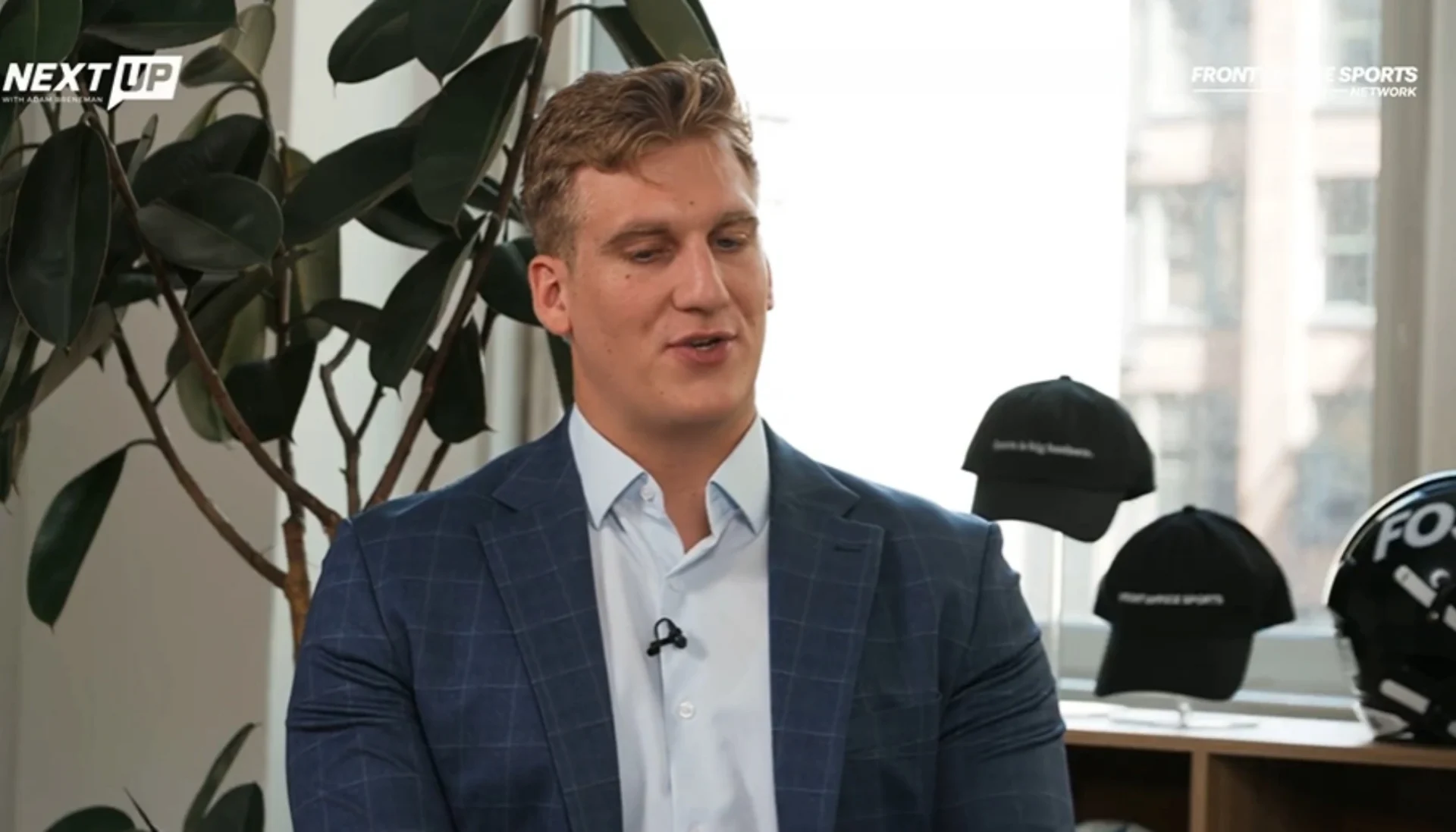Those familiar with college football’s rules and regulations know there’s an uncomfortable truth about the industry. These players generate billions of dollars for universities, fill stadiums, drive TV ratings, and bring in sponsorship deals. In practical terms, this is what employees do for their companies.
Yet they’re still labeled “student-athletes” instead of employees. As analysts Adam Breneman and Jake Butt recently pointed out, the industry is avoiding reality, and the reason comes down to fear of legal consequences.
What Did Jake Butt and Adam Breneman Say About NCAA’s Employee Debate?
Jake Butt recently sat down with Adam Breneman for a candid conversation on “Next Up with Adam Breneman.” The two former athletes discussed what’s wrong with college football today, from NIL flaws to how players are treated like employees without the benefits.
The discussion took a serious turn when the topic shifted to how the NCAA still refuses to call players what they really are. That’s when Breneman spoke up.
“So at what point is like OTAs and the players deserve to see at the table. The thing that I think is so unique or just the piece that’s missing in college sports right now is everyone refuses to use the dirty, dirty word of employee,” Breneman said.
He added that administrators know the truth behind closed doors. “And it’s funny, if you talk to administrators, you talk to administrators at dinner with no cameras, they all acknowledge it. All the coaches, they’re like, listen, the players need to be employees. That’s what they are, they’re employees. But everyone’s deathly afraid to say it publicly because they don’t want to get sued.”
That fear is real. If the NCAA officially classified athletes as employees, it could open major legal challenges and require schools to provide benefits like health insurance, retirement contributions, and comply with labor laws. The classification would have significant implications for universities’ financial obligations.
How Did Jake Butt’s Career Show the System’s Flaws?
The former Michigan tight end shared how the system controlled his academic choices, putting sports ahead of education despite the NCAA’s claims that athletes are students first.
“I always found it ironic that the athlete came first because I wasn’t allowed to take classes from 12 p.m. to 6 p.m. in any of the major semesters, which eliminated like half of the key, you know, good degrees that you could pursue,” Butt explained.
Jake Butt was a two-time All-American at Michigan. Got drafted. Tore his ACL. Lost millions.
He’s lived the highs and lows of football… and now he’s breaking it all down.
We talked about how he almost got suspended over a free haircut.
Why the NCAA is stuck in fear.
What’s… pic.twitter.com/AKTYTtKUH8
— Adam Breneman (@AdamBreneman81) May 30, 2025
Butt’s story is particularly compelling given his career trajectory. He was a two-time All-American who won the John Mackey Award as college football’s best tight end in 2016. However, he tore his ACL in the 2016 Orange Bowl, which significantly impacted his NFL draft stock. After suffering three ACL tears throughout his career, he retired from football in 2021.
The NCAA often defends this system by saying athletes are students first. But the setup doesn’t support education when it limits class choices. This disconnect between rhetoric and reality is exactly what Butt and Breneman are calling out.
Where Is College Sports Heading With Revenue Sharing?
While the employee debate continues, college sports are already changing dramatically. The House v. NCAA settlement, if approved in April 2025, would allow schools to share up to $22 million annually with athletes starting July 1, 2025.
This revenue-sharing model represents about 22% of average power conference schools’ revenue from media rights, ticket sales, and sponsorships. According to the NCAA, Power conference schools generate over 80% of athletic revenues while being responsible for only 40% of the settlement costs, raising questions about equity across Division I athletics.
KEEP READING: NFL Draft Analyst Props Up Ohio State’s Caleb Downs as First Defensive Player Off Board in 2026 NFL Draft
Schools are scrambling to prepare for this new era. Athletic departments are hiring new employees, purchasing software, and searching for new revenue streams to manage what could become a complex system of athlete payments.
The push for fair compensation continues to gain momentum. In 2021, the NCAA generated $18.9 billion in revenue, yet athletes remained unpaid beyond scholarships until NIL rules changed that same year.
As Breneman noted in the podcast, most people involved in college sports actually agree on where the future should go. The question isn’t whether change is coming, but how quickly the NCAA will confront the reality that its athletes function as employees, even if they’re not called that officially.
College Sports Network has you covered with the latest news, analysis, insights, and trending stories in college football, men’s college basketball, women’s college basketball, and college baseball!


